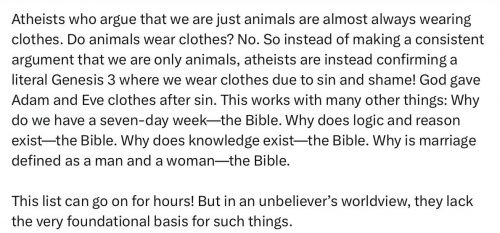I’ve featured Michael Voris several times here — he was the front man for an organization called the Church Militant, a small mob of disgruntled TradCaths, and Voris does a YouTube show called The Vortex which is usually him complaining about the gays, the liberals, the Pope, that sort of thing.
Michael Voris has resigned. Can you guess why?
God Love You pic.twitter.com/SBRFDP9vKD
— Michael Voris (@Michael_Voris) November 21, 2023
I still don’t know. He rambles on about “demons” and “moral failings” and “horrible stuff” without dishing out any details.
Here’s another Church Militant weirdo who makes an empty statement on his resignation. Near as I can tell from this evasive complaint, Voris stopped praying with the staff a few years ago. Prayer is so important! No wonder he lapsed in some mysterious way.
We do know that he was “asked to resign for breaching the Church Militant morality clause,” so there was probably something sordid going on, like that he kissed a boy or donated to a social justice organization or, you know, didn’t pray enough. As much as I would be entertained by a tale of decadence and degeneracy, I suspect that his downfall was brought about by some simple thing that the rest of the world would find quaint, but that his insane community would have been horrified by.









